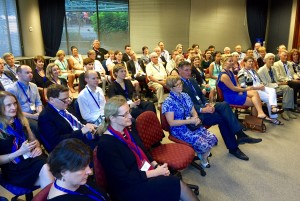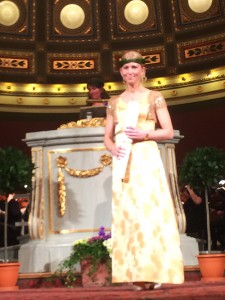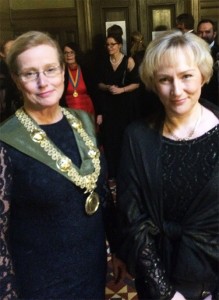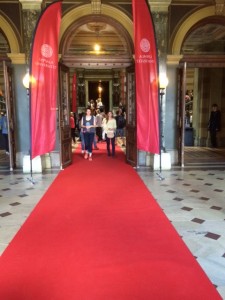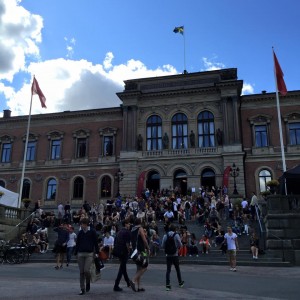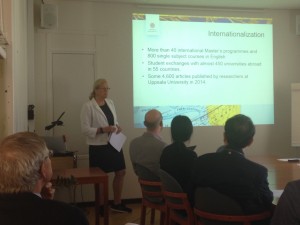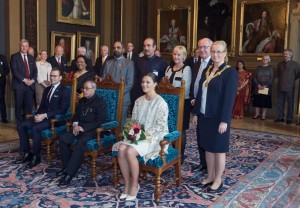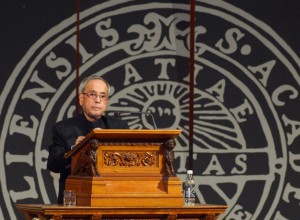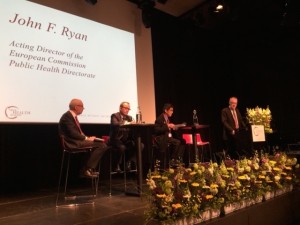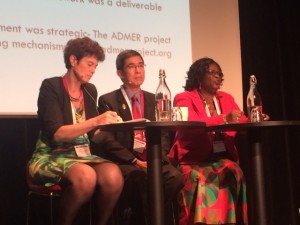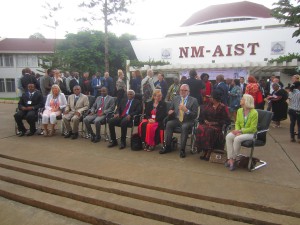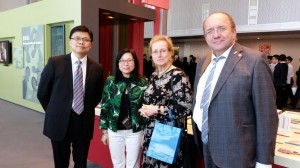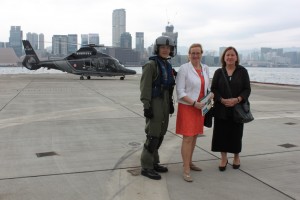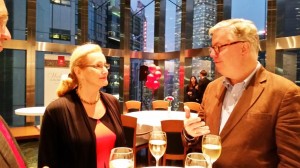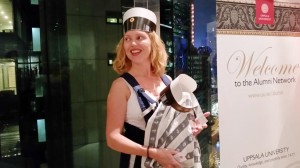Last week began with a meeting with the University Board. As the University Main Building is currently under renovation, the Board instead came together in the Gustavianum, the oldest University building still in use, which over the years has served as everything from student accommodation, University library and the seat of various departments to the museums of today. Museum Gustavianum is an asset to education and research, as well as a meeting place between society, art and science. Last year, there were more than 80 000 visitors. Our sincere thanks to University curator Mikael Ahlund for a fantastic presentation!
The February meeting is always brimming with formal matters: annual report, budget figures, internal governance and control, and planning for the internal audit.
The annual report for 2015 tells of yet another good year for Uppsala University. We are attracting more research funding, reaching our goals for the proportion of women among the new professors (36%), the demand for our educational offerings is still high, and although our total number of enrolments has continued to decline slightly, the number of campus students on Gotland keeps increasing.
However, we refuse to grow complacent, instead pressing on with further development work – on research, education and collaboration. Some of our planned activities for the future are presented in the budget figures we submit to the government. Several of the items on this year’s version are familiar from the input on the upcoming research bill we submitted back in autumn. Increased dimensioning is a quality issue. A broad, full-scale university requires a certain volume of students if it is to retain the quality of its breadth. Increased direct funding for research is another core issue.
As last Monday was the deadline to submit the annual report and budget figures to the government, a group of couriers left for the Ministry of Education and Research in Stockholm immediately following the meeting to personally deliver the documents. Producing annual reports and budget figures is an ambitious undertaking involving many people within the University, within the Departments, within the Faculties, in Faculty Offices and within the University Administration, often under challenging time constraints. I would like to thank everyone for their good work and good cooperation.
At Uppsala University, we have a tradition of strong student representation and active student participation. The question of the standing of the students’ unions was decided on 23 February. The outcome means that the University will have six students’ unions for the coming three years. This places great demands on the coordination and cooperation of the unions. Of course, we hope and believe that our talented and hard-working students will handle it brilliantly. For our part, we shall do everything we can to make things easier for them.
Many of the University’s issues of development are connected to the academic management. The evaluation Utvecklad ledning av universitet och högskolor (approx. ‘Developed governance of universities and university colleges’) was first addressed by the University Board as early as December last year, for information and initial discussions. The evaluation has since been referred for consideration internally within the University. At the meeting, the University Board ratified the University’s statement re: the final statement of the Management Evaluation. The important discussion of leadership and governance is already ongoing within the University, and is sure to continue for some time. This week, the assessor Kåre Bremer visited the management meeting, and the management evaluation will also be one of the issues discussed at the dean meeting this spring.

